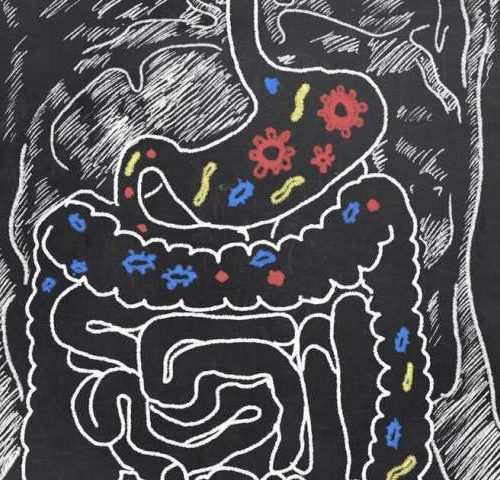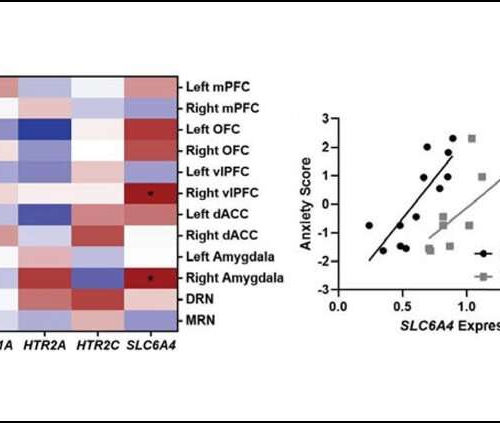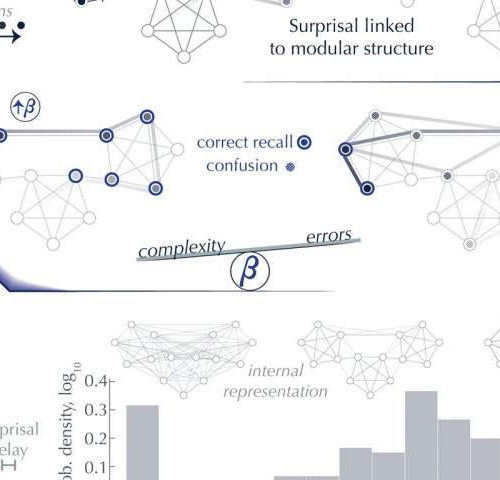As daycare centers and pre-kindergartens begin to reopen around the U.S., the Centers for Disease Control and Prevention recommends masks be worn by teachers, care workers and children over two years of age. Important as they are for helping minimize the spread of the coronavirus, masks come with a potential downside when worn around little...
Tag: <span>brain</span>
How the brain controls our speech
by Goethe University Frankfurt am Main Speaking requires both sides of the brain. Each hemisphere takes over a part of the complex task of forming sounds, modulating the voice and monitoring what has been said. However, the distribution of tasks is different than has been thought up to now, as an interdisciplinary team of neuroscientists...
Why Sleep Deprivation Kills
Going without sleep for too long kills animals but scientists haven’t known why. Newly published work suggests that the answer lies in an unexpected part of the body. Inside a series of tubes in a bright, warm room at Harvard Medical School, hundreds of fruit flies are staying up late. It has been days since...
Continued nicotine use promotes brain tumors in lung cancer patients, study suggests
by Rockefeller University Press Researchers at Wake Forest School of Medicine have discovered that nicotine promotes the spread of lung cancer cells into the brain, where they can form deadly metastatic tumors. The study, which will be published June 4 in the Journal of Experimental Medicine (JEM), suggests that nicotine replacement therapies may not be...
How you might benefit from probiotics
Probiotics are live microorganisms, usually bacteria, that can be consumed to offer health benefits. The ability of certain microbes to confer health benefits on their host was recognized more than 100 years ago. In 1904, Elie Metchnikoff, a scientist at the Pasteur Institute, claimed that Bulgarian peasants lived longer by eating yogurt made from bacteria...
‘Time is vision’ after a stroke
A person who has a stroke that causes vision loss is often told there is nothing she can do to improve or regain the vision she has lost. New research from the University of Rochester, published in the journal Brain, may offer hope to stroke patients in regaining vision. The Rochester team found that survivors...
Local inflammatory cells are characteristic for advanced multiple sclerosis
In the brains of people that suffer from long-term multiple sclerosis (MS), inflammatory cells are not entering the brain via the bloodstream anymore. Instead, the cells arise from local memory cells in the brain. Nina Fransen and her colleagues of the Netherlands Institute for Neuroscience show this in a recently published article in the scientific...
Why some people are more prone to anxiety
by Society for Neuroscience Gene expression of the serotonin transporter gene (SLC6A4) in the right amygdala and vlPFC correlated with anxiety-like behavior in the human intruder test. Credit: Quah et al., JNeurosci 2020 Anxiety-prone people can blame serotonin cleanup proteins gone awry in their amygdala, according to research in marmosets recently published in JNeurosci. Targeting...
Researchers develop a new model for how the brain processes complex information
by University of Pennsylvania The human brain is a highly advanced information processor composed of more than 86 billion neurons. Humans are adept at recognizing patterns from complex networks, such as languages, without any formal instruction. Previously, cognitive scientists tried to explain this ability by depicting the brain as a highly optimized computer, but there...
Why are Women More Likely to have Brain Aneurysms Compared to Men?
By Dr. Liji Thomas, MD A brain aneurysm is a diseased or abnormal dilatation of the cerebral arteries at a weak spot. These typically thin-walled aneurysmal sacs of blood may continue to enlarge because of the force of the arterial pulsatile flow. A ruptured aneurysm leads to a subarachnoid hemorrhage, an SAH. Skewed Gender Representation...








